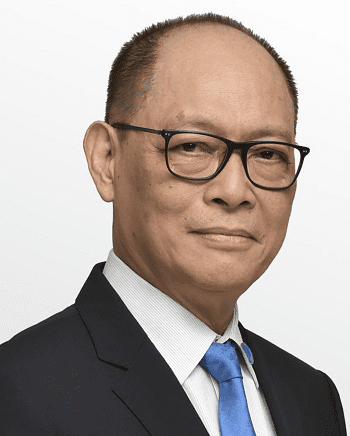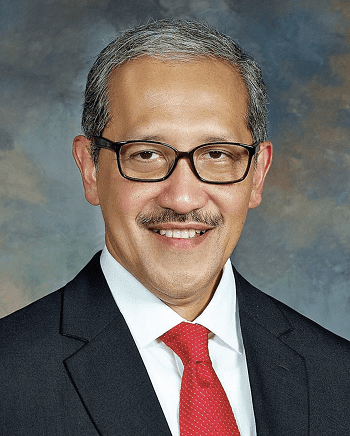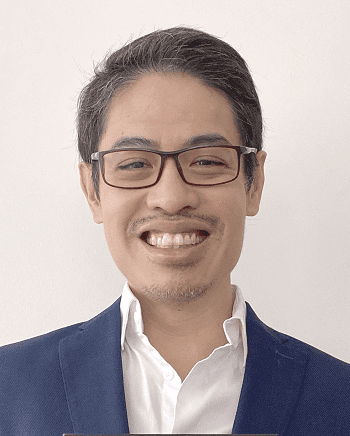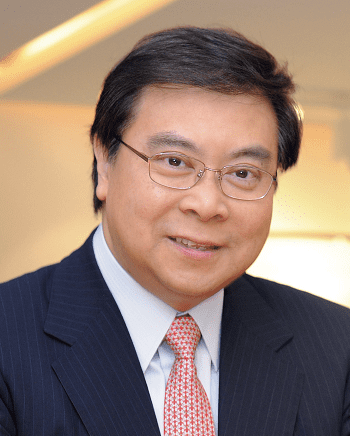Leadership in times of crisis is very different from leading in normal times. The challenge for leaders is to adjust to radically new situations and changed circumstances where the tried and tested may not work and playbooks do not exist.
And that is not something most like to do, or that they are typically used to doing. Most leaders prefer to deal with evolving as opposed to radical changes. And that sits at the root of the challenge, the ability and willingness of leaders to pivot to changed realities and circumstances.
The financial services industry, especially in Asia Pacific, has weathered a number of multi-faceted crises, ranging from economic, financial to public health, in the past two decades that have buttressed institutions’ ability to respond, not just executing effective business continuity plans, but also in the ability and readiness to collaborate with regulators, governments and socio-civic agencies to provide the necessary financial and social support to the communities that they serve.
This year, the Asian Banker Leadership Achievement programme is specifically aimed at evaluating the performance and responses of CEOs and chairmen and the banks that they lead during the COVID-19 pandemic as well as the initiatives implemented to help customers and society at large through the crisis.
The unfolding COVID-19 pandemic is not only a public health crisis of such magnitude not seen in modern times, but has escalated into an economic and financial crisis that has wreaked an enormous toll on the global economy, shutting down businesses and sending millions out of work.
Despite the unprecedented disruption and dislocation to the wider economy, the international banking and financial system is in a stronger position and state of preparedness to help the global economy to recover.
Confronting the crisis from a position of strength
The governor of Bangko Sentral ng Pilipinas (BSP), Benjamin Diokno, perhaps summed up the readiness of financial systems in Asia Pacific to respond to the crisis best. “When the coronavirus pandemic hit us, it hit us from a position of strength. And that’s because of the Asian financial crisis, we have prepared our financial institutions well, we have prepared most of our economy well. We have had two decades of serious structural reforms. We are ready,” he said.

Benjamin Diokno, Governor, Bangko Sentral ng. Pilipinas

Dody Budi Waluyo, Deputy Governor, Bank Indonesia
Never have the scrutiny and expectation on regulators been heavier than during these times of crisis as they play the critical role of implementing the appropriate monetary response to provide financial relief and ensure liquidity support for economic activities to continue. However, the response is still something of a work in progress and not quite a level playing field for all.
Quantitative easing measures which have been espoused by advanced nations, such as the US, EU and Japan to fund government budget to prime pump their economies are not similarly endorsed when practised by emerging economies. They are roundly criticised as monetising government debts instead. Clearly, there are no winners and losers in regulation today, but is a moving target instead. Notwithstanding the differences, regulation has to change, and the management of entire economies are being transformed amid the current pandemic. And extraordinary circumstances require exceptional responses.
Dody Budi Waluyo, deputy governor of Bank Indonesia, commented, “This crisis has challenged how central banks play a crucial role to safeguard the stability of the economy, as well as to support the national efforts in reviving and recovering the economy. One important lesson that Bank Indonesia learned during the extraordinary time is to respond to the conditions through concerted and synergised policy efforts”.
He added, “We are not supposed to buy government bonds in the primary market, or finance the deficit. But the situation needs us to do it, with the understanding that this is a temporary measure. Under the current situation, we need to work hand-in-hand, all the related agencies in government, including the FSA (Otoritas Jasa Keuangan) should respond together during the economic recovery”.
Diokno agreed, “Part of the BSP strategies, is to ensure that the Philippines is able to get back on its balanced and sustainable growth path as soon as possible. We are working closely with the national government and the private sector on structural reforms in line with the whole of nation approach”.
And as economies get back on the path of recovery, some are already thinking of the next steps. Kenneth Gay, executive director of prudential policy at Monetary Authority of Singapore, shared, “With the initial phase of the pandemic behind us, it’s very important for us to now shift our focus towards addressing other issues arising from COVID-19, including how to appropriately unwind, taper the relief measures that were put in place earlier this year as the economy recovers”.

Kenneth Gay, Executive Director of Prudential Policy, Monetary Authority of Singapore

Justo Ortiz, Vice Chairman, Union Bank of the Philippines
The ability to leverage technology and change culture to drive transformation
In assessing bank CEOs’ and chairmen’s responses to COVID-19, we consider thelevel of digitalisation of their institutions’ operations and processes; risk management capabilities, especially around credit and liquidity risk management; how they deploy their own funds in a manner relevant to the
society they serve; and finally, how they create social capital, the means by which their business justifies value through their contributions to the communities they serve.
Well before the pandemic, bank CEOs and chairmen, such as: Wick Veloso, Philippine National Bank; Bassel Gamal, Qatar Islamic Bank; Samuel Tsien, OCBC Bank; Jonathan Alles, Hatton National Bank; Morris Li, CTBC Bank; and Payong Srivanich, Krungthai Bank, have guided their organisations through holistic digital transformation by leveraging new open technology and changing culture to become more agile and operationally resilient.
This year’s William “Bill” Seidman Award for Lifetime Achievement recipient, Justo Ortiz, vice chairman of Union Bank of the Philippines, exemplifies not just what the best in the financial services has achieved so far but also a vision of the future of the industry. The transformation of the bank under his leadership into a leading digital institution marks a significant milestone in the industry that parallels the Philippines’ journey to becoming the dynamic and vibrant economy that it is today.
It is also a reflection of the boldness of his vision and the constancy of his purpose and the passion that serves to inspire both present and future generations of bankers.
“Our purpose is to elevate lives, to fulfil dreams, and enable communities through smart banking in the spirit of Ubuntu (community-building). Technology lifts the floor of human aspiration, but it is community centredness that lifts the ceiling,” Ortiz commented.
The new faces of the industry
We also recognised the achievements of Promising Young Bankers. The winners, Abednego Ugwueke, head of financial inclusion services, First Bank of Nigeria; Ana Maria Aboitiz Delgado, head of digital services and chief customer experience officer, Union Bank of the Philippines; Jonathan Lee, head of products and segments, CIMB Bank Philippines; and Wutisak Ongpatanakul, head of customer experience and digital, business banking, United Overseas Bank (Thai), share the common traits of being builders of digital businesses, whether enhancing customers’ digital channel experiences or creating and delivering digital products and services.
In our search for the leaders who best exemplify the future of the financial services industry those transformation is accelerated by the pandemic, we look for leaders who have the vision to navigate the challenges that confront their individual organisation and the industry as a whole. We also look for leaders who understand that they occupy a position of trust and confidence, and that this is constantly under siege.
OCBC’s Tsien summarised it well, “The only way for a leader to survive and succeed – which also means securing his or her organisation’s survival and success – is to listen, learn and adapt; to accept that there is more than one correct way of doing the right thing; and to be humble in one’s interactions with all the stakeholders”.

Samuel Tsien, Group CEO, OCBC Bank
Despite the disruption caused by the pandemic, financial institutions have proven to be extremely resilient and are operating close to normal; enabling companies to raise capital, access liquidity, and consumers to transact and have their needs served. They are providing critical capital and financing to help economies, businesses and companies rebuild and recover. The safe and efficient operation of the financial system against the backdrop of record trading volumes during the height of COVID-19 lockdowns and work-from-home measures bears testament to their operational resilience, and level of digitalisation and automation.
In this period of increased market volatility, mounting credit and liquidity stress, as well as heightened risks and threats; financial institutions have strengthened their risk management infrastructure and data aggregation capabilities to better manage and mitigate the diverse range of potential risks that have arisen.
Unlike more normal times, this public health crisis has wider and more severe socio-economic impacts. It affects not particular communities, industries, nations or regions but all. Everybody suffers its consequences, either in social, economic or business life, in some forms or shapes. And this translates into radically changed economic and financial circumstances that impact lives and livelihoods.
There will be long term implications from COVID-19 that will change permanently how the global economy, businesses and the financial system will operate in future. Financial players meanwhile will accelerate their digital transformation, and leverage data and smart technologies to provide better experience while managing risks.
Since banks and the financial system are the lifeblood of any economy, they are in a position to alter the fate that customers have to face. It is an opportunity to create social capital with the communities that they serve and contribute back to the societies that they have gained so much from.
Click here to view the full press releases:
William “Bill” Seidman Award for Lifetime Achievement, Justo Ortiz
Leadership Achievement and Best Managed Bank during COVID-19, Bassel Gamal
Leadership Achievement and Best Managed Bank during COVID-19, Jonathan Alles
Leadership Achievement and Best Managed Bank during COVID-19, Morris Li
Leadership Achievement and Best Managed Bank during COVID-19, Payong Srivanich
Leadership Achievement and Best Managed Bank during COVID-19, Samuel Tsien
Leadership Achievement and Best Managed Bank during COVID-19, Wick Veloso
Promising Young Banker, Abednego Ugwueke
Promising Young Banker, Ana Maria Aboitiz Delgado
Promising Young Banker, Jonathan Lee
Promising Young Banker, Wutisak Ongpatanakul
Best Conduct of Business Regulator in Asia Pacific, Monetary Authority of Singapore
Best Macroeconomic Regulator in Asia Pacific, Bank Indonesia
Best Systemic and Prudential Regulator in Asia Pacific, Bangko Sentral ng Pilipinas




All Comments